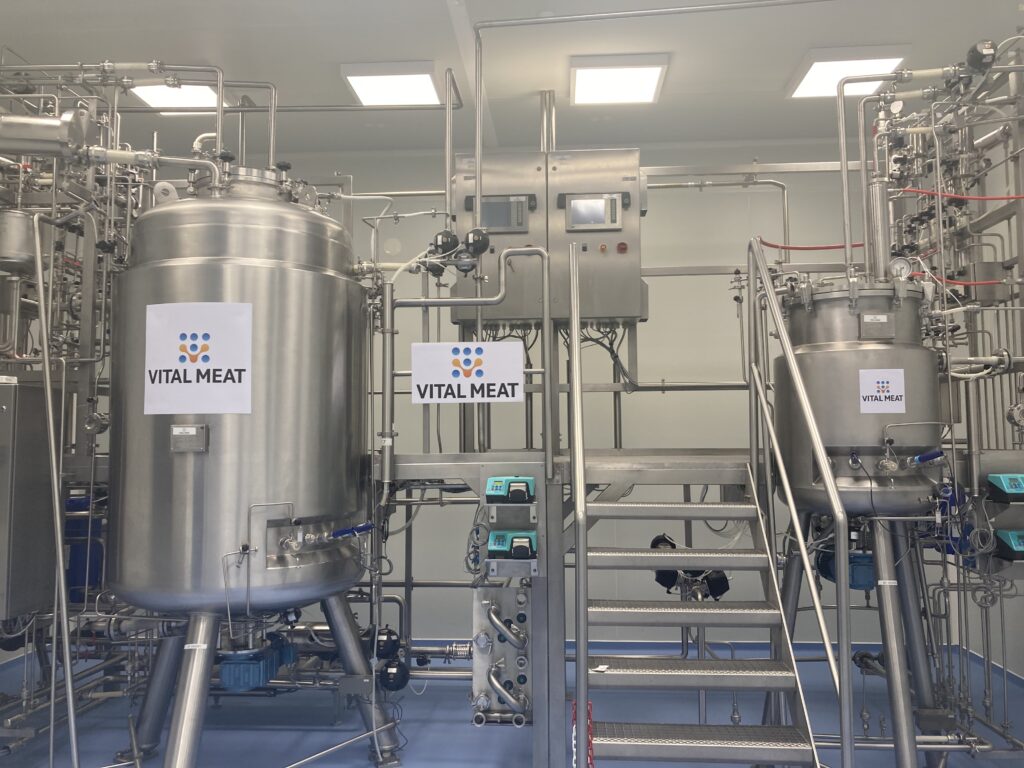Could the Labour Government Hamper Novel Food Regulatory Reform in the UK?
5 Mins Read
With a change of government, the UK’s plans to shake and speed up its regulatory process for novel foods like cultivated meat could be derailed.
Now that the Conservatives have finally been voted out of office after 14 years, climate activists in the UK have breathed a sigh of relief.
Rishi Sunak’s net-zero U-turns and vows to authorise oil projects in the North Sea were deeply unpopular. Sir Kier Starmer’s government has immediately laid down its climate vision – it plans to stop using fossil fuels for electricity by 2030, for starters.
However, the new Labour administration may yet have a negative impact on the Food Standards Agency’s (FSA) plans to overhaul its regulatory framework for novel foods, which include cultivated meat and precision-fermented products.
The UK has retained the EU’s regulatory process post-Brexit, which has created a massive backlog and made it virtually impossible for companies to get their products on the market. The Conservative government had viewed a departure from EU red tape as a positive for post-Brexit Britain, and had backed the FSA’s moves to make wholesale changes.
But the election came just as the food safety body’s work got underway, and now, “competing priorities” and concerns over the initial costs could jeopardise the proposals, FSA chair Susan Jebb told a behind-closed-doors meeting, according to the Grocer.
How the FSA plans to revamp its novel foods framework

Back in March, the FSA said it would create a new public register of regulated products, replacing the current system that requires the parliament to pass statutory instruments before they can be placed on the market.
The existing regulations added up to six months to the process, creating a huge backlog of over 470 applications for novel foods, facing up to a two-and-a-half-year waiting period. The FSA also sought to remove the requirement for products that have already been approved to reapply for clearance every 10 years.
Around the same time, it was revealed that the FSA was seeking £5M in government funding for labs to pilot a ‘sandbox’ testing project for novel proteins, and was in talks to collaborate with food companies and scientists for the same.
And by May, the department was also mulling a system of global cooperation that would involve a “sliding scale of international engagement” to clear the highly congested docket of applications and see cultivated meat and other foods be approved based on their track record in other markets, such as Singapore, Australia and New Zealand.
All these efforts were meant to fast-track approval for startups like those involved in alternative protein. An FSA-commissioned report by Deloitte in 2023 found that speeding up novel foods regulation could help the UK meet its carbon reduction plans (the country has earmarked 2050 as its net-zero target).
“The board has been clear that overhauling the way we authorise new foods is an opportunity for the FSA to drive benefits for consumers by enabling new and innovative products that we assess as being safe to come to market more quickly,” Jebb said in May.
But whether these sweeping changes will actually take place now depends on Starmer’s cabinet, with talks set to be held between Labour ministers and the FSA to persuade the government to go ahead with the plan. “I think there is a good case for it but they may have other priorities,” Jebb told the Grocer.
A test of Labour’s promises

While the food safety body negotiates with the new government, a report that was due to be presented to the FSA’s board about the overhaul has now been postponed to September.
One major issue is the cost involved, according to Jebb. “Change often comes at a price initially, and whilst this may deliver us a better service in the long run, the cost of developing this at the same time as running the existing service should not be underestimated,” she said.
So far, three cultivated meat companies have publicly announced their submissions of dossiers for approval in the UK. Israel’s Aleph Farms was the first to do so last August for its cultivated beef (which has since been given the go-ahead in its home country), while France’s Vitalmeat applied for its cultivated chicken this May.
The only other dossier was for cultivated pet food. London-based Meatly has been in consultation with the FSA for 18 months for feed material registration, and with the Department for Environment, Food and Rural Affairs (Defra) for animal byproducts, legislation and facility treatment since August 2023. Its co-founders Owen Ensor and Helder Cruz revealed to Green Queen last month that the company will first launch cultivated chicken for dogs via a leading pet food brand in the UK, and expects approval by early August.
How the Labour government views the FSA’s move remains to be seen. But it’ll be a test of its pledges to work with businesses, support growth, and mitigate climate change. A report by think tank Green Alliance has suggested that, with the right combination of targeted investments and regulation, the UK’s alternative protein sector could be worth £6.8B annually and create 25,000 jobs by 2035.
Meanwhile, Defra has announced the Starmer government’s five key priorities for the climate, which involve cleaning up Britain’s water bodies, protecting communities from floods, ensuring nature’s recovery, creating a zero-waste economy, and supporting farmers to boost food security.
“Inevitably Labour’s approach to the issue of novel food is different to the previous government. That said, I do think the initiative very much fits into the Labour growth agenda, and I have heard from reliable sources that Keir Starmer is aware of the initiative,” a source told The Grocer.
But they warned that the FSA may have to look beyond state investment to support parts of its plan. “Obviously, getting the funds to make these changes is nonetheless a significant barrier in the current climate.”



